I have a question in regards with the below,
- Left outer join of two tables who are not connected through Foreign Key.
- Order by the results matched in second table.
- I would like this to be done in LINQ Query method syntax as I am adding lots of conditions depending on the input provided along with skip and limit.
If we have below Product and Favorite tables
So the output that I would like to have is:
meaning with the favorites as part of first set and which are not favorites should be behind them. Below are the tries that I did. I am able to join the tables get the output but not sure how I can make sure that in the first page I get all the favs.
This answer was very near to what I thought but it gets the result and then does the ordering which will not be possible in my case as I am doing pagination and using IQueryable to get less data.
Group Join and Orderby while maintaining previous query
Open to any solutions to achieve the same.
[Table("Product")]
public class ProductModel
{
[Key]
[DatabaseGenerated(DatabaseGeneratedOption.Identity)]
public Guid ProductId { get; set; }
public string ProductName {get; set;}
public bool IsFavorite { get; set; }
}
[Table("UserFavorite")]
public class UserFavoriteModel
{
[Required]
public Guid UserId { get; set; }
[Required]
public Guid Identifier { get; set; }
[Required]
public FavoriteType Type { get; set; }
}
// Gets products
private async Task<List<ProductModel>> GetProductsAsync(
Guid categoryId,
Guid subCategoryId,
int from,
int limit)
{
var query = _context.Products.AsQueryable();
if (!string.IsNullOrEmpty(categoryId))
query = query.Where(product => product.CategoryId == categoryId);
if (!string.IsNullOrEmpty(subCategoryId))
query = query.Where(product => product.SubCategoryId == subCategoryId);
query = query.Skip(from).Take(limit);
var products = await query.ToListAsync();
query = query.GroupJoin(
_context.Favorites.AsNoTracking()
.Where(favorite => favorite.Type == FavoriteType.FASHION)
// This user Id will come from context just adding for overall picture.
.Where(favorite => favorite.UserId == userId),
//This orderby if I add will not make any difference.
//.OrderByDescending(favorite => favorite.Identifier),
v => v.ProductId,
f => f.Identifier,
(product, fav) => new { product, fav }).
SelectMany(x => x.Fav.DefaultIfEmpty(),
(x, y) => SetFavorite(x.Project, y));
}
private static ProductModel SetFavorite(ProductModel v, UserFavoriteModel si)
{
v.IsFavorite = (si != null);
return v;
}


